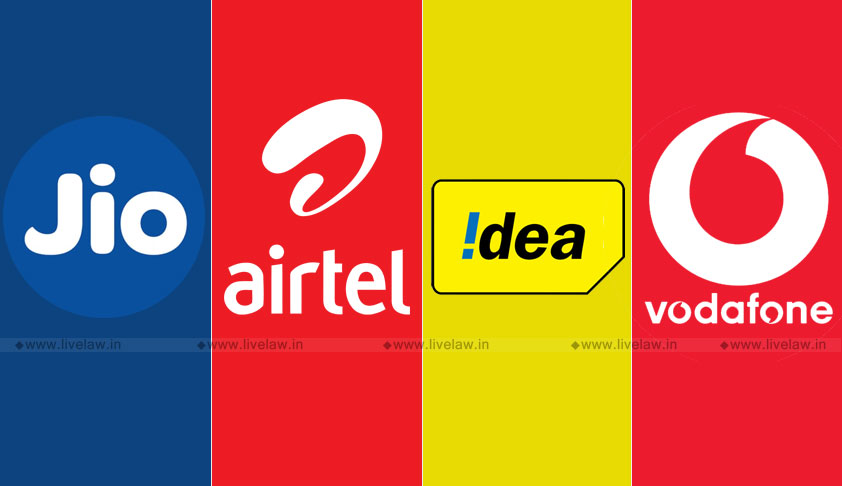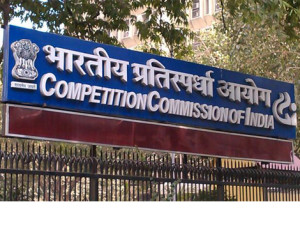Supreme Court dismisses CCI & Reliance Jio’s appeals- upholds TRAI’s jurisdiction to decide upon technical issues with Bharti Airtel, Vodafone, Idea -finds a middle path and resolves CCI vs. sector regulators’ conundrum-postpones CCI scrutiny into any possible collusion

The Supreme Court of India, by a recent judgement dated 5th December 2018, while dismissing the appeals filed by the Competition Commission of India (CCI ) and Reliance JIO and by upholding the Bombay High Court (“High Court”) judgment dated 21st September 2017 which had quashed the CCI prima facie order directing investigation under section 26(1) of the Competition Act,2002 (the Act) against Bharti Airtel, Vodafone , Idea ( “existing telecom players”) and the trade association , the Cellular Operators Association of India ( COAI) has deftly found a middle path and resolved the long debated tussle for supremacy between the overarching fair market watchdog, the CCI and the sector specific regulators , the Telecom Regulatory Authority of India (TRAI), in this case, by postponing scrutiny into any possible co-ordination or collusion between the existing telecom players through the platform of COAI or otherwise .
Further, the Apex Courts , while upholding its earlier much celebrated judgment in the Steel Authority of India Ltd. (SAIL) case[1] (SAIL Case) on the nature of the CCI prima facie order under section 26(1) of the Act ( administrative and not quasi-judicial as contended by the existing telecom players) has also , for the first time , made a distinction between examination of competition issues by CCI in a sector having a statutory regulator and a sector without one. The Court has invoked the need for use of section 21A of the Act, which makes it mandatory for CCI to obtain opinion of the sector regulator on sector specific issues first .
The Apex court has accordingly held that until the jurisdictional facts ( the “technical issues” pertaining to contentious point of connection, interconnection charges , point of interconnection etc. between existing telecom players and reliance Jio) are decided by TRAI , CCI can not proceed to investigate any possible coordination between the existing telecom players . The Court , however, rejected the contention of the existing telecom players that CCIs jurisdiction is completely ousted in cases where a statutory regulator (TRAI in this case) exists .
BACKGROUND
In exercise of powers under Section 13 r/w Section 11 of the TRAI Act, the TRAI issued direction dated 7th June, 2005 to all the telecom service providers to provide interconnection[2] within 90 days of the applicable payments made by the interconnection seeker. On October 21, 2013, Reliance Jio Infocomm Limited (Reliance Jio) was granted Unified License and Unified Access Service License under Section 4 of the Telegraph Act, 1885 by the Department of Telecom (DoT) for providing telecommunication services in all 22 circles in India. Reliance Jio executed interconnection agreements with the existing telecom operators viz. Bharti Airtel Ltd. (“Airtel”), Idea Cellular Ltd. (“Idea”) and Vodafone India Ltd. (“Vodafone”) [collectively referred as Incumbent Dominant Operators- IDOs in the judgment ]
Reliance Jio, vide letter dated 21st June 2016, requested the IDOs to augment Point of interconnection (POI) for access, National Long Distance (NLD) and International Long Distance (ILD) services, as the capacity already provided to it was causing huge POI congestion, resulting in call failures on its network. According to Reliance Jio, the IDOs intentionally ignored the aforesaid request, and Reliance Jio issued a letter to TRAI, following which TRAI had to intervene and it heard the grievances on both sides. IDOs’ grievances basically being focused on free calls being offered by Reliance Jio as a test run which led to an unprecedented traffic congestion on their respective networks.
Soon thereafter, In September 2016, one Mr. Rajan Sardana filed information before the Competition Commission of India (“CCI”) and similar application was filed by one Justice K.A Puj (Retd.). Subsequently, an information was filed by Reliance Jio itself before the CCI alleging cartelization amongst the IDOs and Cellular Operators Association of India (“COAI”), by causing delay/denying (i) the provisioning of POIs to Reliance Jio, (ii) Mobile Number Portability requests of customers who wanted to switch to Jio (iii) also, COAI was acting on behest of the IDOs against the interest of Reliance Jio.
As the matter was with TRAI as well, TRAI issued recommendations to DoT after finding that IODs have violated conditions under the Standard of Quality of Service of Basic Telephone Service(Wireline) and Cellular Mobile Telephone Service Regulations,2009 (hereinafter referred to as the ‘QoS’), interconnection agreements and Unified License. TRAI recommended that a fine of Rs. 50 crore as per local service area be imposed on the IDOs for not adhering to TRAI norms and regulations. On the other hand, CCI took cognizance of the three above-mentioned informations filed before it which were registered as Case No. 81, 83 and 95 of 2016 and passed an Order dated 21st April, 2017 under Section 26(1) of the Act directing investigation by the DG into alleged cartelization amongst the IDOs (“prima facie order”).
Writ Petitions were filed immediately by the IDOs against the said prima facie order challenging the jurisdiction of CCI as the matter fell within the exclusive jurisdiction of another regulatory authority- TRAI.
BOMBAY HIGH COURT DECISION
In a nutshell, the judgement of the High Court dated 21st September 2017 held that insofar as contracts, license issues, quality of services, interconnection agreements etc. which are regulated by the TRAI Act are concerned, as the first instance, it is the authority of TRAI to decide these questions. Once there is a determination of the respective rights and obligations under these licenses by the authority under the TRAI Act, only thereafter the CCI gets jurisdiction to go into the questions of anti-competitive practices. In other words, the jurisdictional facts are to be decided by the authorities under the TRAI Act which has exclusive jurisdiction to determine those issues as the TRAI is the statutory authority established for this very purpose, and unless there is determination of these facts, the machinery under the Competition Act, 2002 cannot be invoked.
The High court, therefore, holding that it was premature for the CCI to entertain the Information filed before it, quashed the CCI’s prima facie order.
SUPREME COURT DECISION
The Supreme Court, in its decision dated 5th December 2018, framed three issues which were raised before it, as formulated below:
- The Jurisdiction of CCI
The Supreme Court before determining the issue, undertook a careful analysis of the provision of the Act and TRAI Act, 1997 and arrived at the conclusion that the functioning of the telecom companies which are granted license under Section 4 of the Telegraph Act, 1885 is regulated by the provision contained in the TRAI Act. The Hon’ble Supreme Court observed that, in the instant case, dispute raised by Reliance Jio is that the IDOs have not given POIs as per the license conditions resulting into non-compliance and have failed to ensure inter alia technical compatibility thereby. In addition, not only has Reliance Jio raised this dispute, it has specifically approached TRAI for settlement and TRAI is seized of this particular dispute. TRAI being a specialized sectoral regulator and also armed with sufficient power to ensure fair, non-discriminatory and competitive market in the telecom sector, is better suited to decide the current issue.
The Hon’ble Supreme Court, therefore, agreed with the findings of the High Court that till the jurisdictional issues are straightened and answered by the TRAI, the CCI is ill equipped to proceed in the matter.
However, it is pertinent to note that the Hon’ble Supreme Court did not totally oust the jurisdiction of CCI. The Hon’ble Supreme Court observed that even if TRAI returns a finding that a particular activity was anti-competitive, its powers would be limited to the action that can be taken under the TRAI Act alone, and if such activities offend the provisions of the Competition Act, 2002, the consequences under that Act would also follow.
In totem, since the matter pertains to the telecom sector which is specifically regulated by the TRAI Act, balance is maintained by permitting TRAI in the first instance to deal with and decide the jurisdictional aspects which can be more competently handled by it. Once that exercise is done and there are finding returned by TRAI which lead to the prima facie conclusion that IDOs have indulged in anti-competitive practices, CCI can be activated to investigate the matter. Therefore , the Hon’ble Supreme Court in its decision, does not bar the jurisdiction of CCI altogether but only pushes it to a later stage, after the TRAI has undertaken necessary exercise in the first place.
- Whether the Writ Petitions filed before the Bombay High Court were maintainable, as the Order passed by CCI under Section 26(1) of the Act is administrative in nature?
The Hon’ble Supreme Court although, while upholding its earlier decision in the SAIL case acknowledged that the order passed under Section 26(1) of the Act, is administrative (and not quasi- judicial) in nature, held that the Writ petitions were still maintainable since the jurisdictional issues raised before it could only have been examined under the extraordinary powers of the High Court under Article 226 of the Constitution .
- Whether the High Court gave its finding on merits in the Writ Petition?
The Hon’ble Supreme Court observed that as it has acknowledged that the order under Section 26(1) of the Act is administrative in nature, the High Court would not be competent to adjudge the validity of such an order on merits. However, since the Hon’ble Supreme Court is upholding the order of the High court with respect to the jurisdictional conflict, the ultimate decision of the High court quashing the CCI’s order under Section 26(1) of the Act is not liable to be interfered.
Comment: This is undoubtedly another landmark judgment from Justice AK Sikri . This judgment assumes significance because, Firstly-The Hon’ble Supreme Court has finally shown a middle path to resolve the long-debated issue of jurisdictional conflict between the CCI and sector regulators . The Hon’ble Supreme Court, by invoking the doctrine of harmonious construction has balanced the stand by giving TRAI the power to determine the rights and obligations of the parties first, and then if it apprehends the existence of anti-competitive act, invokes the jurisdiction of CCI. In coming to this conclusion , the Apex Court has , without making a special reference, followed the existing jurisprudence on this issue in the USA , illustrated in the noted cases of Credit Suisse Case[3] and the Verizon Communications case[4] decided by the US Supreme Court; Secondly– the Hon’ble Supreme Court while upholding its earlier much celebrated judgment in the Steel Authority of India Ltd. (SAIL) case[5] (SAIL Case) on the nature of the CCI prima facie order under section 26(1) of the Act ( administrative and not quasi-judicial as contended by the existing telecom players) has also , for the first time , made a distinction between examination of competition issues by CCI in a sector having a statutory regulator and a sector without one; Thirdly ,the Hon’ble Court has not ruled out the possibility of co-ordination between the existing telecom players to challenge the maverick business model of Reliance Jio and has ,therefore left the determination of such competition issues open by CCI subsequent to the determination on the technical issues by TRAI.
[1] CCI vs. SAIL (2010) 10 SCC 744
[2] To ensure smooth communication by a subscriber of one service provider to the cell number which is provided by another cell provider. Example- Smooth communication between a Vodafone customer and Airtel customer
[3] Credit Suisse Securities (USA) LLC vs Glen Billing [551 U.S. 264]
[4] Verizon Communications Inc vs Law Offices of Curtis v. Trinko, LLP [540 US 398]
[5] CCI vs. SAIL (2010) 10 SCC 744







